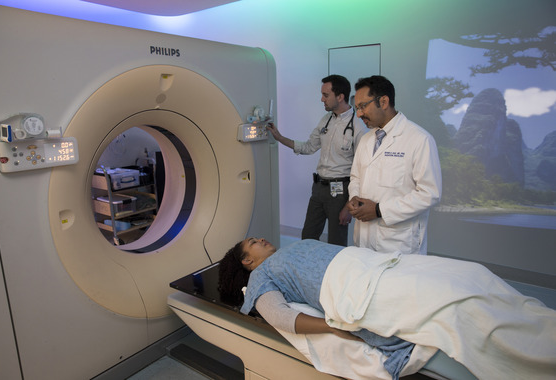The first step toward effective head and neck cancer treatment is an accurate diagnosis. At UC Davis Comprehensive Cancer Center, we also stage the cancer to find out if and where it has spread (metastasized).
Your physician begins with a complete medical history and physical exam. We check your neck, throat, mouth, nose, lymph nodes and other areas for bumps, sores or discolored areas. You may also have blood and urine tests so your physician can rule out other health conditions, such as a virus or infection.
Tests for head and neck cancer may include:
Endoscopy: Endoscopy is the most common test for head and neck cancers. Your physician inserts an endoscope (a thin, flexible tube with a light and lens) into your nose and down your throat. They use this tool to examine your nose, throat, and voice box. You receive general anesthesia during an endoscopy, so you rest comfortably.
Other imaging exams: We may do an X-ray, ultrasound, MRI, CT scan, or PET scan. These noninvasive tests show us the size, shape, and location of tumors. We also use imaging scans to find out if cancer has spread outside your head or neck to other parts of your body.
Biopsy: A biopsy is the only way to confirm a diagnosis of head and neck cancer. We take a small tissue sample from your primary tumor location or suspicious neck lymph node. A pathologist examines the sample under a microscope to look for cancer. We may do a surgical or fine needle biopsy (using a needle with a syringe to get cells) based on the tumor's location.









